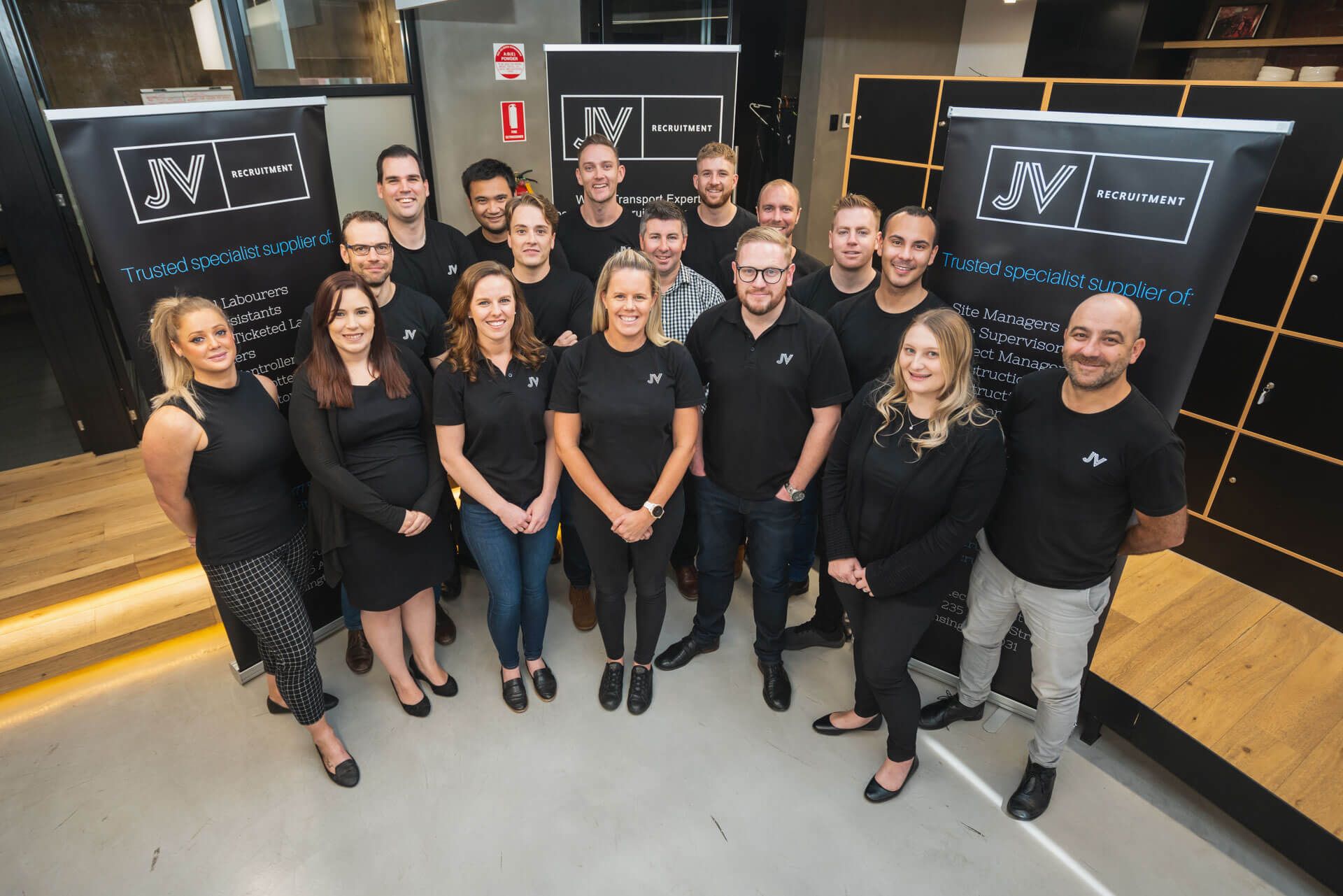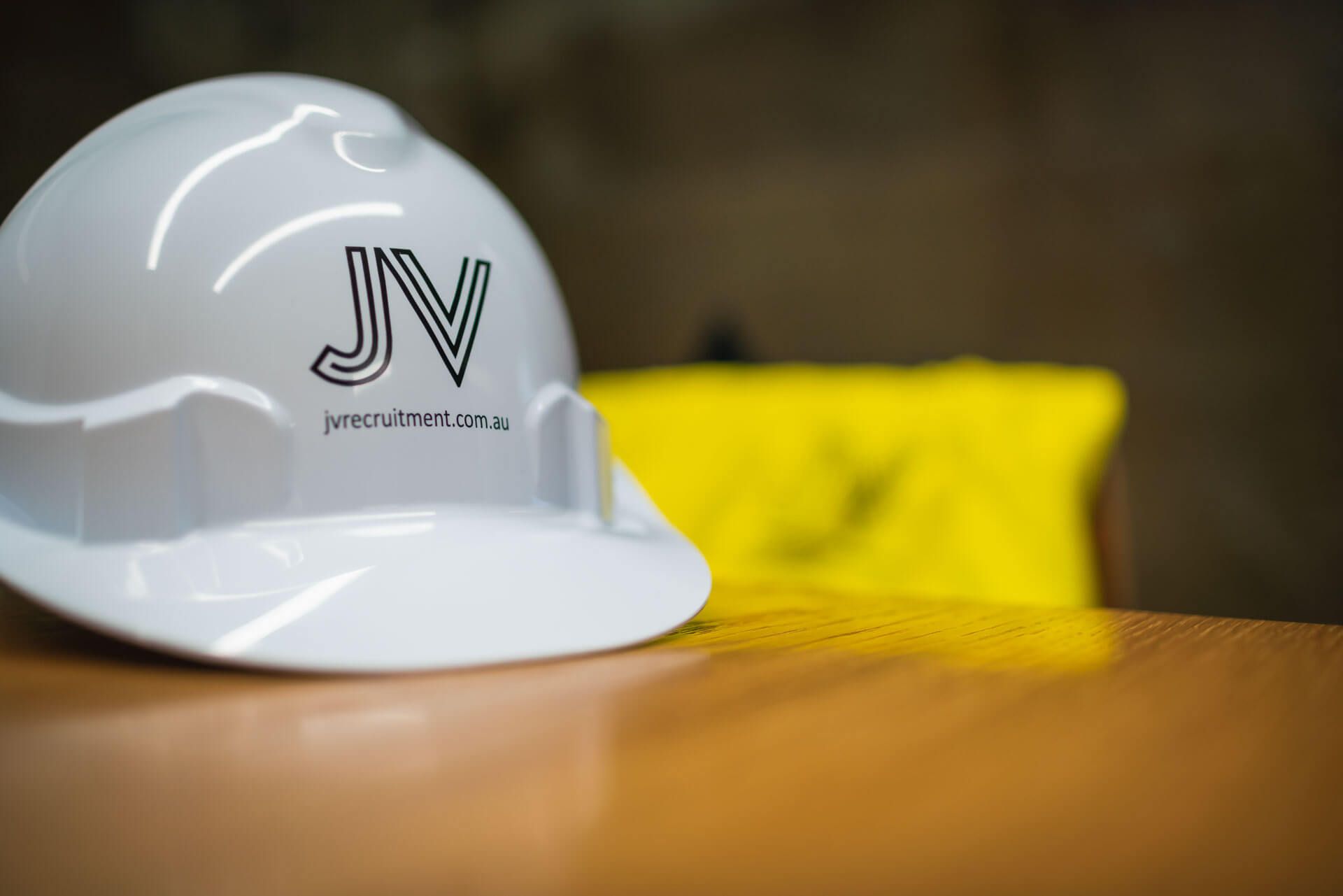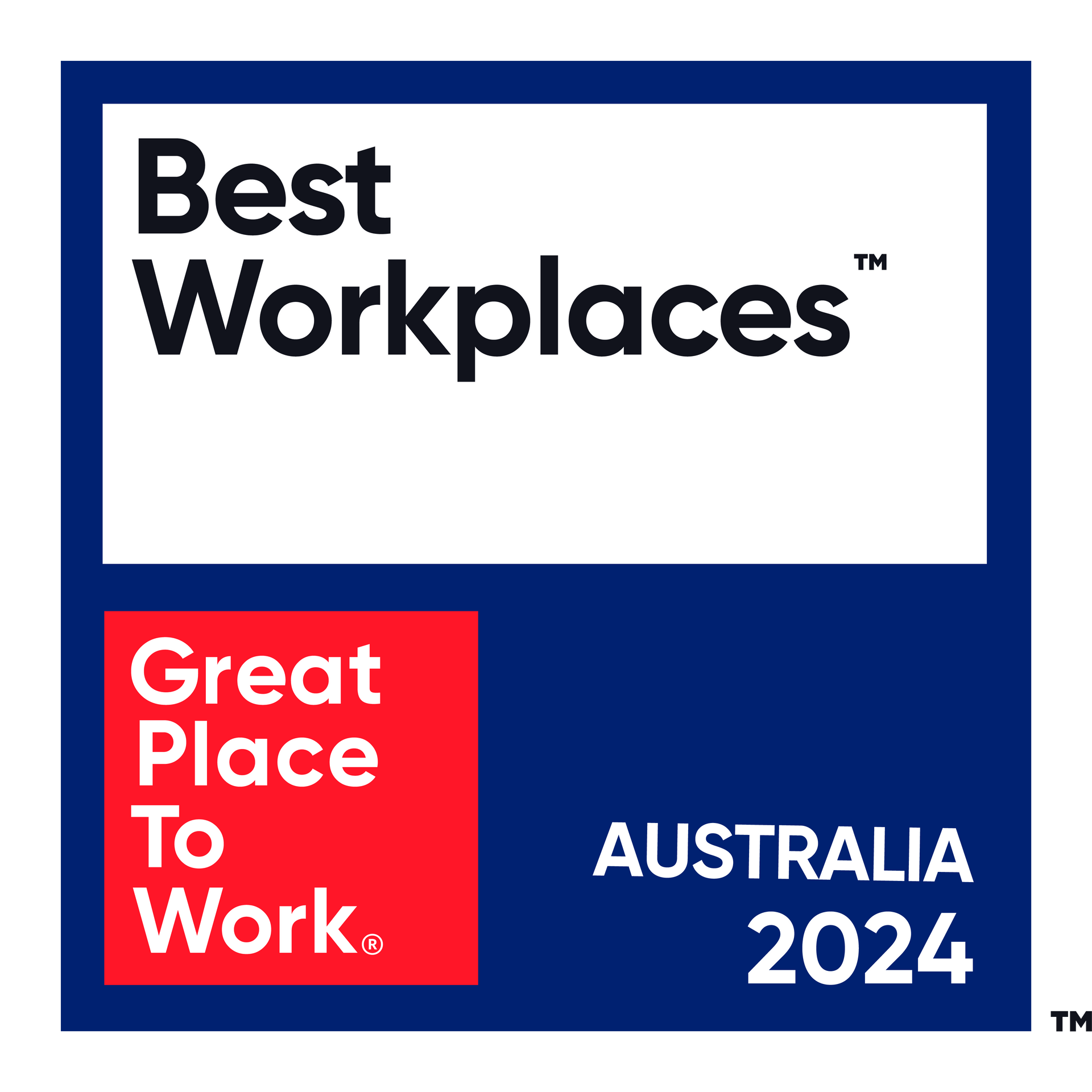P: +61 3 9377 5800
F: +61 3 8651 2987
E: info@jvrecruitment.com.au
Content Hub
Keyword Search
Posts by Tag

March 17, 2025
In Australia, it's estimated that 30-40% of the population is neurodivergent, including individuals with autism, ADHD, dyslexia, and more. Embracing neurodiversity in the workplace isn't just about inclusivity - it's a smart business strategy that can deliver tangible benefits, particularly in construction, labour hire, and skilled trades, where diverse skill sets are highly valuable.

By Fiona Lauder
•
November 18, 2024
As we head into 2025, the residential construction market is facing a blend of challenges and opportunities. As a specialist in hiring for the residential construction sector, Fiona Lauder takes a deep dive into the latest data and insights to better understand what’s happening.

October 9, 2024
Mental Health Month is a national event celebrated every October, aiming to improve community awareness and understanding of mental health and wellbeing, serving as a reminder that safety on the job site goes beyond hard hats and caution tape. So here are some key programs and organisations leading the way when it comes to raising awareness and providing mental health support to the construction sector and beyond

By Mitchell Barker
•
June 28, 2024
Whenever I ask clients about their biggest challenges, the common response is, "finding and attracting good people." In the highly competitive construction job market, securing top talent requires more than just offering a position—you need a transparent and engaging interview process. Here are three critical conversations you should have with potential hires to stand out and attract the best in the industry: Financial Stability & Viability The construction industry is known for its volatility, and the high number of company liquidations can make job security a major concern for candidates. Share your company's robust financial health, stability, and strategic growth plans to reassure potential hires that your business is not just surviving but thriving, ensuring their role is secure for the long term. Career Development Opportunities The post-COVID era has shifted the focus from sky-high salaries to career growth. Potential hires want to understand their future with your company. Outline clear pathways for progression, training programs, and mentorship opportunities. Demonstrating a commitment to their professional development can be a game-changer in your hiring strategy. Work/Life Balance The modern workforce values balance more than ever. Highlight your initiatives to support work/life balance, whether through flexible working hours, mental health support, or family-friendly policies. Showing that you care about their well-being outside of work can make your company an attractive place to build a career. By addressing these key areas during interviews, you not only build trust but also position your company as an employer of choice. If you are looking to hire permanent or contract white collar , labour hire or traffic management staff for your construction team across NSW, Victoria or Queensland, reach out to me or any of the team at JV . You can rely on JV Recruitment to get #WorkDoneRight!

June 11, 2024
We’re absolutely thrilled to announce that Malcolm Fettes , a powerhouse in our industry and a true leader, has officially stepped into the role of Managing Director and business partner alongside our CEO, Stuart Campbell . This isn’t just another promotion—it’s a deliberate, well-deserved decision that reflects Malcolm’s incredible dedication and pivotal role in JV Recruitment’s journey. With his appointment, we’re not just marking a new chapter; we’re writing a whole new book in our story of growth and our commitment to delivering #WorkDoneRight . For the past 15 years, JV Recruitment has built a rock-solid reputation in the construction industry, offering top-tier White Collar , Labour Hire , and Traffic Management services. As we continue our expansion across the eastern seaboard of Australia, Malcolm’s leadership is a testament to our vision for success and our drive to elevate our strategic direction. Stuart Campbell, our Founding Director, shared his thoughts on this exciting development: “It was all about honouring a promise I made to Malcolm. Malcolm has thought and acted like a business owner since day one, and cementing this relationship with business ownership means a lot to us as people and mates. This level of commitment to each other only strengthens our resolve for a successful expansion across the East Coast of Australia.” About Malcolm Fettes Malcolm hails from Scotland and brought his recruitment expertise to Australia two decades ago. Over the years, he's worked across various sectors, including facilities management, hospitality, and construction. For the past 12 years, he's been a key player in JV Recruitment, significantly contributing to our growth and establishment. Malcolm has worn many hats here, from supporting internal recruitment and strategic planning to training and mentoring our team. He's known for his trustworthiness, confidence, and passion for all facets of recruitment, negotiations, and company growth. As our former COO, Malcolm managed business operations across Victoria, NSW, and Queensland, including JV Traffic in Victoria. His responsibilities also covered the permanent, labor hire, business development, and finance sectors. Looking Ahead For those seeking top-tier recruitment services in Melbourne , Sydney , Brisbane , Gold Coast , and Geelong , JV Recruitment remains your go-to partner. Whether you're looking to hire in the construction sector , or you're seeking casual or permanent work within the construction sector , we're here to help. Feel free to reach out to Stuart Campbell or Malcolm Fettes for further information: Contact Information: Stuart Campbell Email: stuart@jvrecruitment.com.au Malcolm Fettes Email: malcolm@jvrecruitment.com.au If you are a paid subscriber, you can also read more about this in the lastest edition of Shortlist . Stay tuned for more updates as we continue to grow!

May 13, 2024
Navigating the construction industry's Labour market can be complex and challenging. With every project, the need for skilled workers and dedicated staff is crucial. Finding the right construction staffing agency is paramount to ensure the success of your projects. 3 Factors to Vet Your Construction Staffing Agency A top-notch construction recruitment agency partner can make a world of difference to your time to hire, employee retention, and attracting the best candidates to your business. Experience and Expertise Your staffing agency should have a proven track record of placing workers in various construction roles and a deep understanding of industry-specific nuances. Ask about their previous successful placements in roles similar to what you need filling and request specific examples that demonstrate their knowledge of industry standards and regulations. At JV Recruitment, our team has over 15 years of experience in the construction industry. We have successfully placed thousands of skilled workers in roles ranging from entry-level positions to senior management. Our deep understanding of the industry allows us to identify the right candidates for your specific needs quickly. Quality Control and Compliance Compliance and quality control should be the unwavering foundation upon which your staffing strategy is built. Investigate the agency's procedures for vetting candidates, including screening for experience, qualifications, and any serious safety incidents . A comprehensive agency will have a rigorous selection process that filters employees based on their skills and ongoing development. JV Recruitment's comprehensive screening process includes thorough background checks, reference verifications, and skills assessments. We ensure that all candidates meet the necessary qualifications and have a clean safety record. Our ongoing training and development programs keep our workers up-to-date with the latest industry standards and best practices. Scalability and Speed Your staffing agency must match industry volatility with agility and responsiveness. Present potential staffing partners with scenario tests, such as last-minute changes to project scope or unanticipated staff absences, to evaluate their adaptability and available resources. JV Recruitment's extensive database of pre-qualified candidates allows us to quickly respond to your staffing needs, even in the face of unexpected changes. Our flexible approach and strong network enable us to scale our services to match your project requirements, whether you need a single worker for a short-term assignment or a large team for a long-term project. Direct Placement vs. Temporary Staffing The choice between permanent roles and temporary staffing depends on your project's requirements, your company's organisational structure, and the level of control you wish to maintain. The Permanence of Direct Placement Direct hires introduce skill sets for the long haul, commitment, and the gradual synergy that only comes from a permanent team working in unison. A construction staffing agency with prowess in direct placement should be your ambassador in the competitive market for talent. The Transience of Temporary Staffing Temporary staffing within the construction industry serves as a relief valve for project-based needs. It allows firms to maintain a lean operational structure, adapting labour costs to the project's flux. Look for a staffing partner who has a robust database of candidates, a quick turnaround time, and a system for managing temporal talent that supplements your existing hierarchy without structural strain. The Labourers Lifecycle: Safety, Training, and Retention The lifecycle of a labourers in the construction industry encompasses the continuum from safety induction through skills training to retention strategies that manage and grow talent within your projects. Safety First, Always A credible construction staffing agency prioritises safety by providing a comprehensive induction encompassing site-specific safety protocols and risk mitigation. Look for an agency that continually educates its workforce on the most current safety standards and practices. The Training Trestle A robust induction process is the bridge between a new hire's existing knowledge and their successful integration into your company's operations. When evaluating staffing agencies, examine the depth and quality of their induction programs. The agency's induction initiatives should align with your company's safety protocols, work practices, and growth projections, ensuring that new employees are well-prepared to contribute to your projects from day one. Retention Riddles Staffing agencies that proactively engage in retention strategies diffuse the productivity-killing bomb of high staff turnover. Evaluate the strategy your potential staffing agency has in place for preventing staff attrition, such as competitive compensation, workplace benefits, and career development pathways. At JV Recruitment , we understand the intricacies of the construction industry's labour market. With over 15 years of experience, our commitment to excellence in sourcing, safety, and staffing transcends numbers on a page; it's the lifeblood that energises every project we touch. Contact us to start a conversation about how we can partner on your next construction endeavour. We bring in the workforce you need at the speed you need without compromising on quality.

April 15, 2024
Are you a construction professional looking to take your career to new heights? Discover valuable advice and insights on career progression, upskilling, and networking that will help you build a thriving career in the construction industry. The construction industry offers a wide range of exciting career opportunities for professionals looking to make their mark. Whether you're just starting or seeking to advance your career, there are several key strategies you can employ to reach your goals. Develop Your Skills Investing in your professional development is crucial for career advancement in the construction industry. Identify areas where you can improve your technical skills or acquire new ones that are in high demand. Consider pursuing certifications, attending workshops, or enrolling in courses that will enhance your expertise and make you a more valuable asset to your team. Build Your Network Networking is a powerful tool for career advancement in any industry, and construction is no exception. Attend industry events , join professional organisations, and connect with colleagues and specialist construction recruitment professionals on LinkedIn. Building relationships with other professionals can lead to valuable opportunities, such as job openings , partnerships, or mentorship. Seek Out Mentorship Finding a mentor who has already achieved the level of success you aspire to can be incredibly beneficial for your career growth. A mentor can provide guidance, advice, and support as you navigate your career path. Look for experienced professionals within your organisation or industry who are willing to share their knowledge and insights. Take On New Challenges Demonstrating your ability to take on new challenges and responsibilities is key to advancing your career. Volunteer for projects that stretch your skills and offer to lead teams or propose innovative solutions to problems. By showing initiative and a willingness to learn, you'll position yourself as a valuable contributor to your organisation. Communicate Your Goals Make your career aspirations known to your supervisors and colleagues. Engage in regular c areer discussions with your manager and express your interest in taking on additional responsibilities or moving into leadership roles. By communicating your goals clearly, you'll be more likely to receive support and opportunities for growth. Stay Up to Date with Industry Trends The construction industry is constantly evolving, with new technologies, techniques, and regulations emerging all the time. To stay competitive and advance your career, it's essential to stay informed about the latest industry trends. Read industry publications, attend conferences , and participate in online forums to keep up-to-date and demonstrate your expertise. At JV Recruitment, we are committed to supporting construction professionals in achieving their career goals. Our team of experienced recruiters can provide valuable insights, job opportunities , and guidance to help you take your career to the next level. Contact us today to learn more about how we can support your career growth in the construction industry.
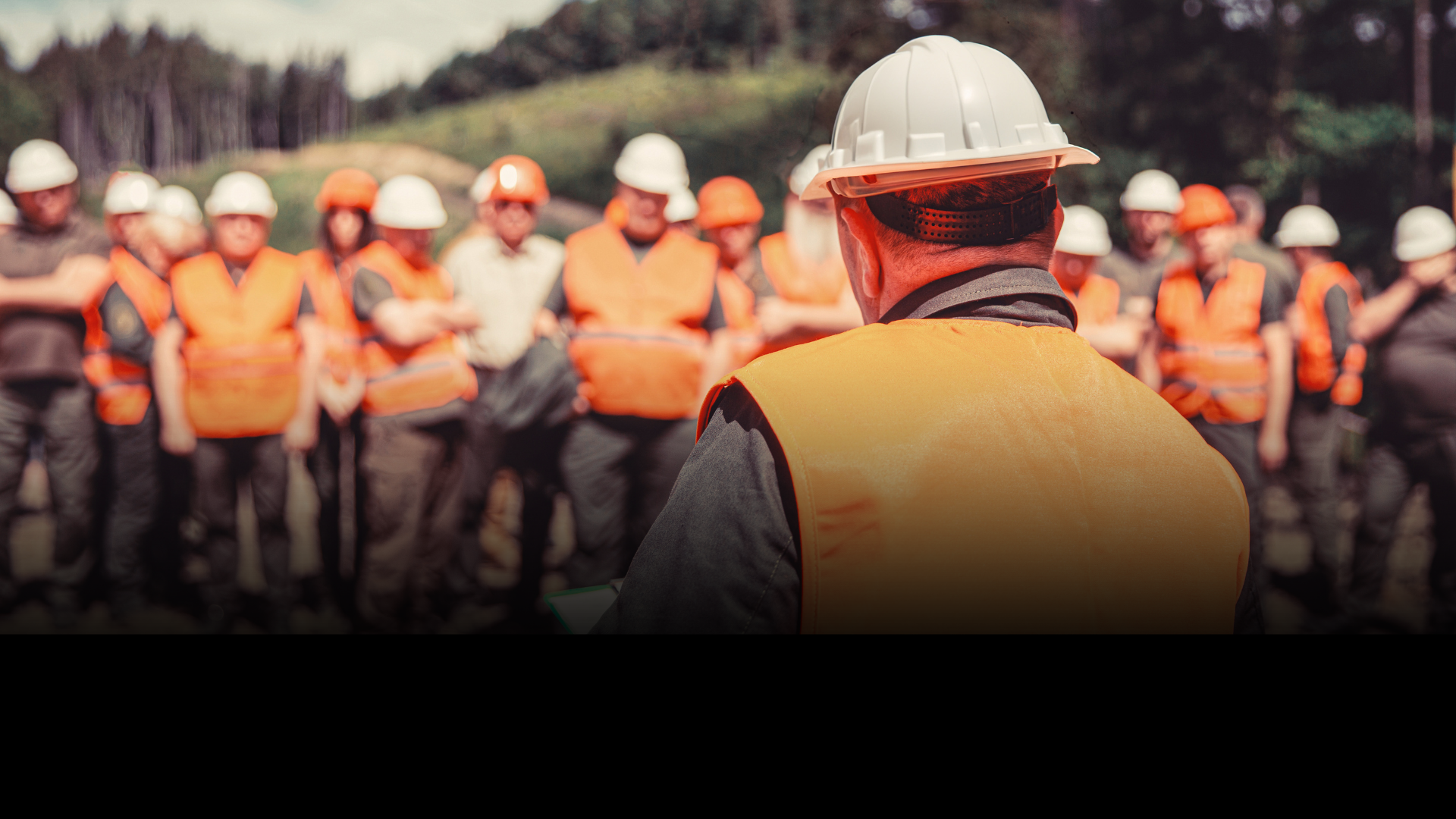
March 27, 2024
The construction industry is a dynamic and challenging field that requires a diverse set of skills to succeed. While technical proficiency is undoubtedly necessary, the role of soft skills is often overlooked. In this blog post, we'll explore the crucial importance of soft skills in the construction industry and how they contribute to the success of construction professionals. Communication At JV Recruitment, we know communication is the foundation for any successful construction project. The roles we place emphasise: Active listening skills to understand the needs of site foremen, architects, and engineers and accurately translate that to tradespeople. Clearly conveying complex technical instructions, blueprints and project specs in ways that are easily understood, regardless of language barrier. Adaptability to communicate effectively across different audiences - from office managers focused on schedules and costs to hands-on construction crews in the field. Problem-Solving Construction is a field where unexpected issues are the norm, not the exception. Skilled problem-solvers are a must for the roles JV Recruitment fills. We seek candidates who can: 1. Quickly identify the root cause behind delays, code violations, material shortages or structural defects and implement a solution. 2. Think creatively to find workarounds like alternative materials, rerouting schedules or adjusting designs when roadblocks occur. 3. Make calculated decisions balancing quality, timelines and budgets to keep projects progressing despite changes and setbacks. Teamwork No construction job can be accomplished alone - our placements require collaboration across all levels of the project team. Top candidates demonstrate: 1. The ability to work cooperatively alongside project managers, engineers, inspectors, tradespeople and labourers towards shared milestones. 2. Resolving conflicts constructively through negotiation tactics, such as mediation of change orders or artistry disputes. 3. Flexibility to take on tasks outside their primary role, pivot from original plans and integrate seamlessly with new crew rotations. The Role of JV Recruitment At JV Recruitment, we understand the importance of soft skills in the construction industry. Our experienced team of recruiters is dedicated to helping construction professionals identify and cultivate the soft skills that will set them apart in their careers. Whether you're a seasoned construction professional looking to enhance your soft skills or a company seeking top talent with a potent combination of technical expertise and interpersonal abilities, JV Recruitment is here to support you. Browse our job openings or contact us to discuss your recruitment needs today.

March 27, 2024
The construction industry is known for demanding work schedules, long hours, and frequent job site travel. While these challenges are often inherent to the nature of the work, they can take a toll on the personal lives of construction professionals, leading to stress, burnout, and even decreased productivity if not managed. In this blog post, we'll explore the importance of work-life balance in the construction field and provide practical strategies for managing the unique challenges faced by industry professionals. The Importance of Work-Life Balance working in the Construction sector Maintaining a healthy work-life balance is crucial for personal well-being and professional success. When individuals have the time and energy to nurture their relationships, pursue hobbies, and care for their physical and mental health, they are likelier to be happy, engaged, and productive in their work. On the other hand, a lack of work-life balance can lead to increased stress levels, decreased job satisfaction, and even higher turnover rates within the industry. Challenges in the Construction Industry The construction industry presents several unique challenges when it comes to achieving work-life balance: Long Hours Construction projects often require extended workdays, sometimes stretching into evenings and weekends to meet deadlines. Job Site Travel Many construction professionals must travel to various job sites, which can involve long commutes or extended periods away from home. Physically Demanding Work The physical nature of construction work can exhaust individuals, making it difficult to find the energy for personal activities and commitments. Seasonal Fluctuations The construction industry is subject to seasonal fluctuations, with busy periods often coinciding with summer when many people prefer to spend time with family and friends. Strategies for Achieving Work-Life Balance Despite these challenges, there are several strategies construction professionals can employ to improve their work-life balance: Set Boundaries Communicate your commitments and priorities to your employer and colleagues. Be proactive in setting boundaries around your work hours and availability, and carve out time for family, friends, and personal interests. Prioritise Self-Care Make time for activities that promote physical and mental well-being, such as exercise, meditation, hobbies, and socialising with loved ones. Taking care of yourself will help you maintain the energy and focus needed to excel in your work. Leverage Technology Utilise project management tools, video conferencing, and other technologies to streamline communication and minimise unnecessary travel. This can help you work more efficiently and create more time for personal pursuits. Negotiate Flexible Arrangements Discuss the possibility of flexible work arrangements with your employer, such as compressed workweeks, remote work options, or adjusted start and end times. Many companies are increasingly open to such arrangements as they recognise the benefits of a healthy work-life balance. Foster a Supportive Workplace Culture Encourage open communication and support among colleagues. Share strategies for managing stress and maintaining balance, and work together to create a culture that values hard work and personal well-being. The Role of Employers While individuals have a significant role in achieving work-life balance, employers in the construction industry are also responsible for supporting their employees. Companies can take several steps to promote a healthy work-life balance: Encourage Open Communication Create an environment where employees feel comfortable discussing their commitments and challenges. Listen to their concerns and work together to find solutions that benefit both the individual and the company. Offer Flexible Work Options Where possible, provide employees with flexible work arrangements, such as adjusted schedules, remote work options, or job sharing. This can help individuals better manage their personal and professional responsibilities. Prioritise Employee Well-Being Implement programs and initiatives that support employee well-being, such as wellness challenges, stress management workshops, and mental health resources. Demonstrate a genuine commitment to the health and happiness of your workforce. Lead by Example Ensure company leaders and managers model healthy work-life balance behaviours. When employees see their supervisors prioritising personal well-being, they are more likely to feel empowered to do the same. Achieving work-life balance in the construction industry is an ongoing process that requires effort and commitment from both individuals and employers. By implementing strategies such as setting boundaries, prioritising self-care, leveraging technology, negotiating flexible arrangements, and fostering a supportive workplace culture, construction professionals can successfully manage their industry's unique challenges and lead more fulfilling lives both on and off the job site. At JV Recruitment, we understand the importance of work-life balance in the construction industry. Our experienced team is dedicated to helping professionals find opportunities that align with their skills, goals, and personal commitments. If you're seeking a new role that supports a healthy work-life balance, we're here to help. Contact us today
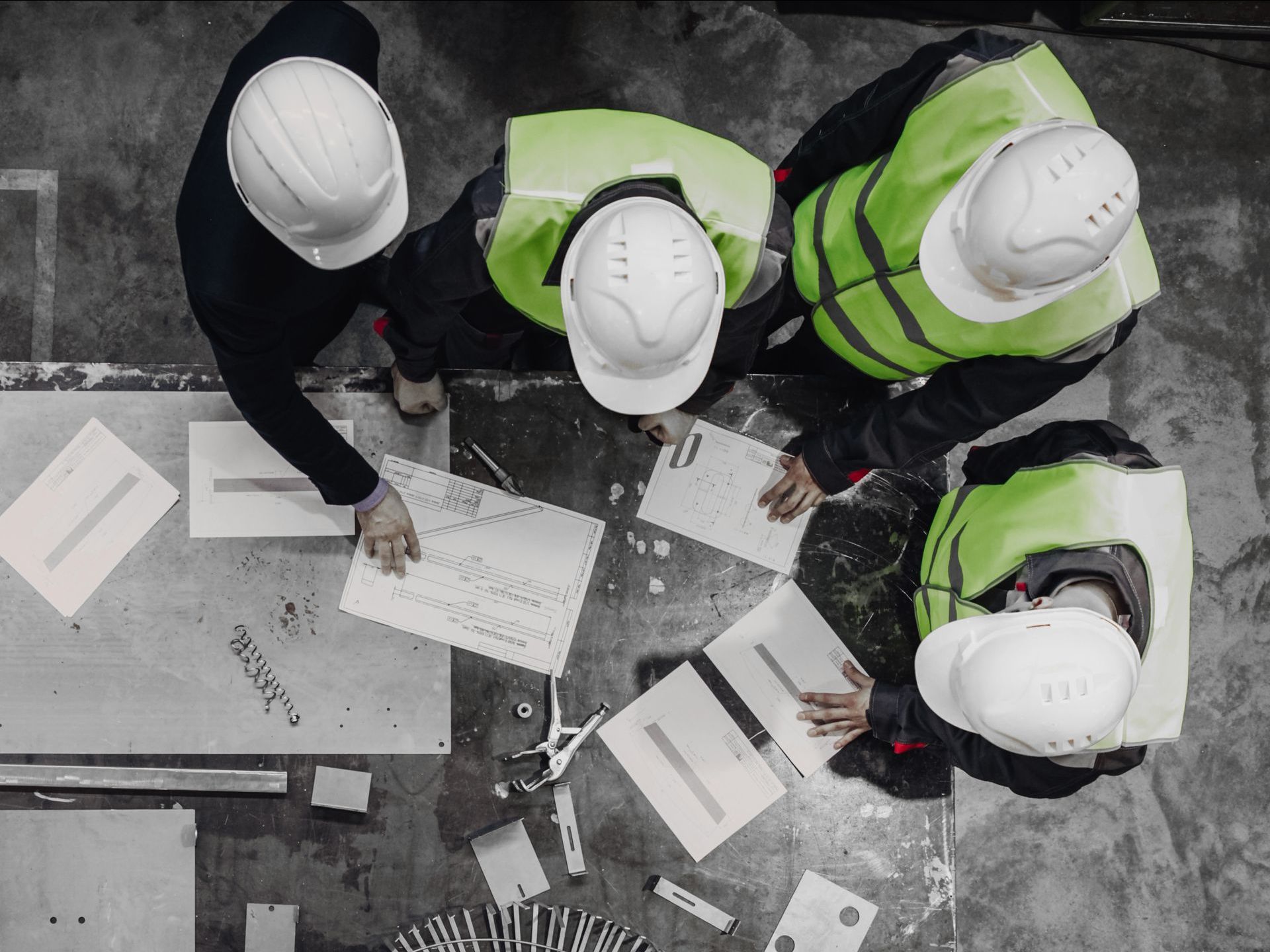
March 14, 2024
In the highly competitive construction world, having a team of skilled and dedicated professionals is the foundation for success. However, attracting top talent in this industry takes much work. With the increasing demand for experienced construction workers and the growing skills gap, companies must go the extra mile to stand out as employers of choice. So, how can you position your construction company to attract the best and brightest in the field? The answer lies in creating a compelling employer brand that resonates with your target audience. Your employer brand is the unique identity and reputation that sets you apart from competitors and showcases what makes your company a great workplace. In this blog post, we'll explore the key strategies for crafting an appealing employer brand that will help you attract top construction talent. From highlighting your company culture and values to offering competitive compensation and benefits, and we'll cover the essential elements that make your company irresistible to job seekers. Let's explore how you can build a winning team by making your construction company the most sought-after employer in the industry. Craft an Appealing Employer Brand Top construction professionals are highly sought after in today's competitive job market. To attract the best talent, it's essential to cultivate an appealing employer brand. Share stories that highlight your company's values, culture, and opportunities for growth. Showcase your team's successful projects and achievements, positioning your organisation as a winning team that top workers will want to be a part of. According to this study , 72% of employees consider an employer's brand before accepting a job. Offer Competitive Compensation and Benefits Compensation is a crucial factor for construction professionals when considering job opportunities. Conduct thorough market research to ensure your salaries and benefits packages align with industry standards. Offer competitive salaries, performance bonuses, comprehensive health insurance, and retirement plans, demonstrating your commitment to fairly compensating and valuing your workforce. As reported by this data from the Australian Bureau of Statistics, the average weekly earnings for construction workers in Australia are $1,663. Prioritise Professional Development Opportunities for continuous learning and career advancement drive ambitious construction workers. Invest in training programs, mentorship initiatives, and educational resources that support their professional growth. Highlight clear career paths within your organisation and share success stories of employees who have advanced through the ranks, showcasing your commitment to their long-term development. According to this LinkedIn research, 94% of employees would stay at a company longer if it invested in their career development. Embrace Diversity and Inclusion A diverse and inclusive workplace fosters innovation, creativity, and a more engaged workforce. Implement strategies to attract and retain a diverse talent pool, ensuring equal opportunities for all individuals regardless of gender, race, or background. Celebrate diversity and cultivate an environment where everyone feels valued and respected, contributing to a positive and productive work culture. Leverage Technology and Innovative Practices Top construction talent is often drawn to companies that embrace cutting-edge technology and innovative practices. Invest in the latest construction technologies, such as Building Information Modeling (BIM), drone surveying, and project management software. Showcase your commitment to sustainability and environmentally friendly practices, which are increasingly important to many industry professionals. Foster a Positive Work Culture A positive and supportive work culture is essential for attracting and retaining top talent. Encourage open communication, collaboration, and work-life balance. Recognise and reward outstanding performance and provide opportunities for team-building and social engagement. A strong company culture that promotes a sense of belonging and loyalty among employees can be a powerful differentiator in the competitive construction job market. According to this Gallup study , companies with engaged employees can outperform their competitors by 147% in earnings per share. At JV Recruitment, we understand construction companies' unique challenges in attracting top talent. Our experienced recruitment consultants work closely with clients to develop tailored strategies that align with their unique needs and values. Contact us today to learn how we can help you build a talented and engaged construction workforce.

JV is a specialist recruitment and traffic management agency. We’re experts across the following specialisations throughout Australia: Construction, Engineering, Facilities Management, Energy & Renewables, Business Support and Traffic Management.



